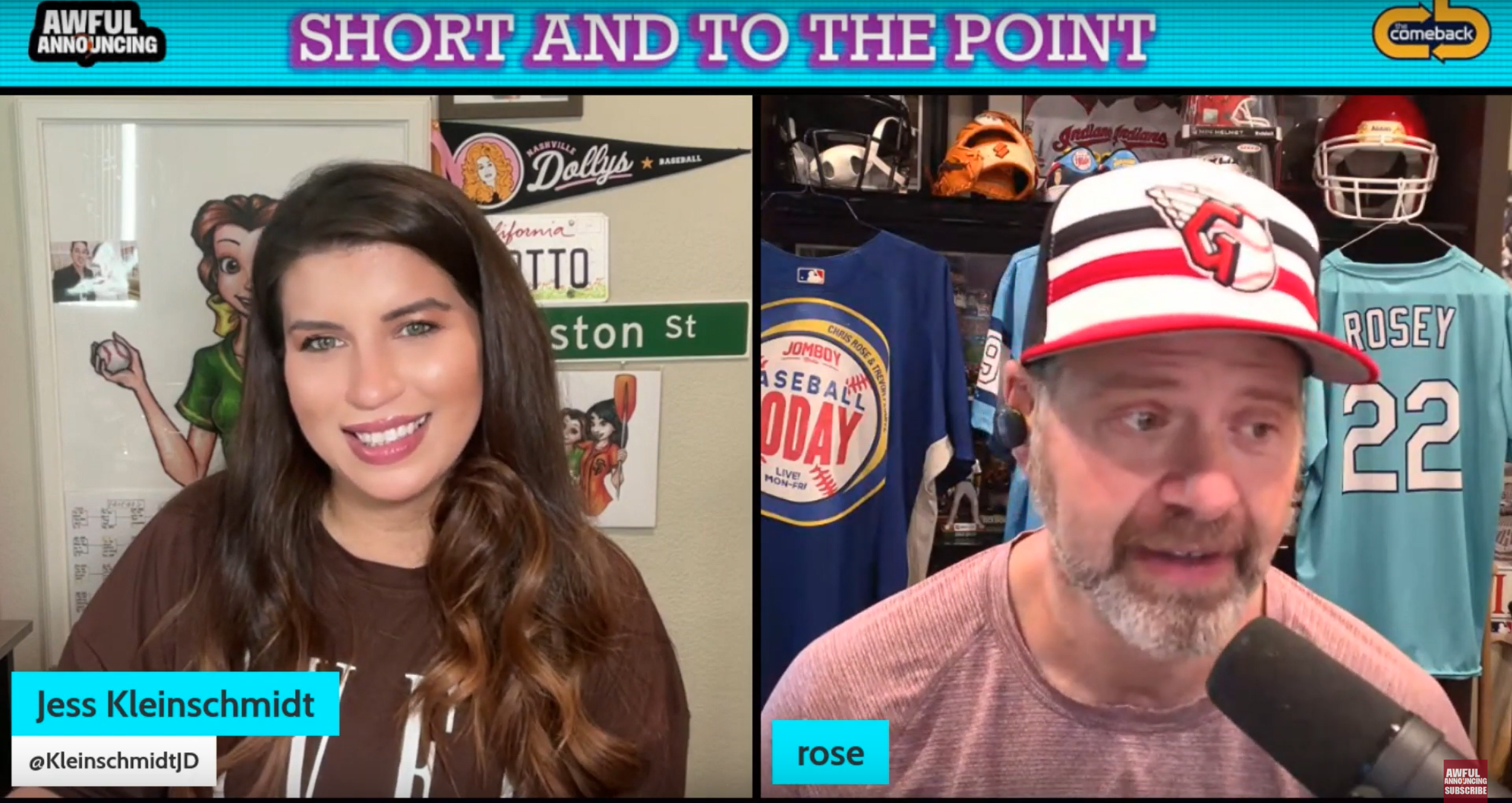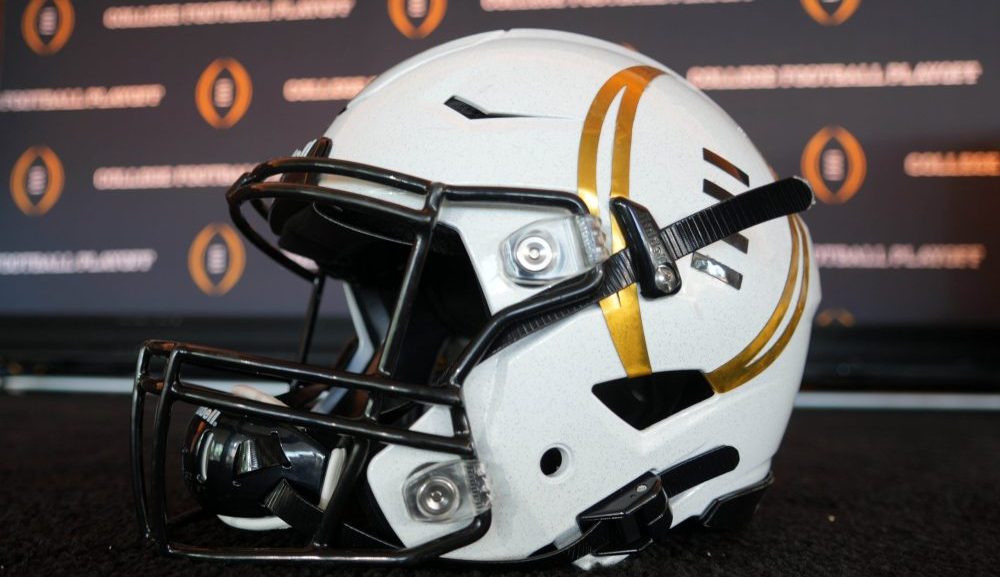Editorial note: This is a freelance article from a contributor. If you’re interested in writing for us, please email awfulannouncing@gmail.com with your pitch. The author can be reached @joefridayjr. Joe worked ten years in sports media and now works with media companies to grow their business
“There’s always going to be somebody like ‘The Wire’ was for HBO,” Bomani Jones told The Washington Post in 2020. “’The Wire’ didn’t get great ratings, but they wanted to say they had ‘The Wire.’ It looked good on the masthead.” The point of comparison was that while the critically acclaimed and beloved HBO series didn’t have robust viewership numbers, it was a highly valued part of the network’s programming.
Jones was speaking of his place at ESPN, but the quote could also be applicable to his standing with HBO, his other employer. Game Theory with Bomani Jones returns for Season 2 this Friday at 11 p.m. EST, following Real Time with Bill Maher. Season One spanned six Sunday nights last March and April, airing after Last Week Tonight with John Oliver.
Season One of Game Theory stayed within the lines of standard HBO talk show fare: A monologue with Leno-esque jokes on the sports topics of the week was followed by a sit-down interview with guests ranging from the nationally recognized (Tracy Morgan, Stephen A. Smith) to those with niche popularity (Dawn Staley, Vince Staples). The final segment was a deep dive into a cultural topic that crossed into sports (Crypto, or the controversial history of The Masters, for example). Interspersed within these three segments were taped ‘man-on-the-street’ style interview clips or Chappelle’s Show-esque skits.
If the marketing of the show, which is ramping up in the days before the Season 2 premiere, seems muted, that may be by design. Judging the success of Season One depends on the criteria. If it’s ratings, there’s not much to sugarcoat. Game Theory from a traditional ratings standpoint struggled losing the majority of its lead-in audience, and only one clip of the show on YouTube registering over 100,000 views. But HBO’s talk shows nowadays are valued for their low production costs and ability for clips to go viral on social. In that sense, Game Theory did see some success, with this clip poking fun at white Duke basketball players, or this segment on the renewed interest in HBCU football (which starts with, for my money, the best skit of the season), gaining modest traction in social and digital video views.
A show like Game Theory was never destined to be a runaway success, but modest expectations set the franchise up for incremental growth. Season One ran during the football offseason and NBA regular season doldrums. Season 2 will at least cover the last few weeks of the NFL playoffs. After the six episodes ordered for Season One, it appears ten are planned for Season 2. By comparison, both Real Time and Last Week Tonight clock more than 20 episodes each season. The closest sports talk show comp, HBO’s ill-fated Any Given Wednesday with Bill Simmons, even lasted 17 episodes before it was cancelled for low ratings that drew three-to-four times the number of average viewers that Game Theory had.
A huge difference in the coverage between the initial seasons of Game Theory and Any Given Wednesday is that AGW was widely mocked for its low ratings and mediocre output. Outlets from the Washington Post to Business Insider to this website piled on prior to the show’s cancellation midway through its first season, an embarrassing outcome following Simmons’ high-profile partnership with HBO. By comparison, Game Theory received little coverage – good or bad – for the quality of the program. Predictably, the only coverage mocking the show’s ratings came from Outkick. Jones remains somewhat of a sacred cow in sports media, so much so that the harshest critic of his cancelled ESPN show, High Noon, is Jones himself. The handful of national sports media critics rarely point a critical eye at any show featuring Jones the way they do at various other talking head shows, such as First Take.
So while it appears Jones is spared negativity from most press outlets, at least those whose websites don’t make your computer fan kick into a higher gear, the question remains: Is Game Theory any good?
The answer is… kinda? Sometimes? Season 2 will probably be better?
The Chappelle-style skits were fun. Jones’ comfort on camera didn’t start great but improved as the season continued. The show kicks off with a raucous intro from Just Blaze. The interviews, unsurprisingly, depended on the guest. If the guest was entertaining, it hit, if their personality wasn’t outsized, it was forgettable. The deep dives, in characteristic Jones fashion, were intelligent and informative. They most closely mirrored what he does best – soliloquies on complicated topics about the intersection of sports and culture. Jones’ proficiency on these topics is so strong that he has spawned a handful of sports media talent that attempt to parrot his takes on issues, while usually lacking the nuance and unpredictability his viewpoints on any given topic have.
All that mentioned above sounds like a fine to above-average TV show, but unfortunately the monologues existed. The first third of each show was a barrage of dad jokes on recent sports topics, reminding us why weekly sports shows rarely work. If the audience is hardcore sports fans, they likely saw these jokes, or ones 10x funnier, on Twitter within hours of the topic first occurring. If the audience is casuals, then bookending the show with a deep dive on NFL head coach hiring practices likely won’t keep that audience engaged. If the audience is just fans of Bomani, the corny jokes were so out-of-character from what has worked for him in his various other TV and audio appearances that they felt written by a team of writers that compromised on the punchline. Here, the axiom that you can’t be everything for everyone applies.
The show is produced by Adam McKay’s Hyperobject Industries, so it’s a solid bet they’ll get the comedy part right, or just eschew it all together. A staff writer who started his career at The Onion, Zach Rice, was promoted to head writer for Season 2. Longtime listeners of Jones’ radio and podcast know he’s meticulous on the production, music and planning of his shows. His podcast was born out of his radio show which has gone onto become ESPN’s Top 5 original audio properties.
HBO clearly wants to be in the Bomani Jones business. He regularly appears on Back On the Record with Bob Costas (HBO, perhaps realizing the shelf life of late night sports talk, has only run two seasons totaling 16 episodes). They’re giving Jones time, space, and resources to grow Game Theory into something that’s regularly appealing to a niche audience and can be shared on social/digital platforms. Unlike with Simmons, there was no fanfare, no 20-episode first season ordered, no huge money contract publicized following an ugly ESPN departure. Ironically, because of his standing among those who cover media, Jones will be given an opportunity to improve the show in relative peace, knowing there won’t be many vultures ready to hyper-analyze his show into cancellation anytime soon.
In the early 2000s, The Wire was able to escape low ratings and cancellation by outdoing itself in quality each season until it became a critical darling. For Bomani Jones, the second part of that mission was complete before the show started, so there’s a good chance that Game Theory will be given leeway to match the talent of its host.







